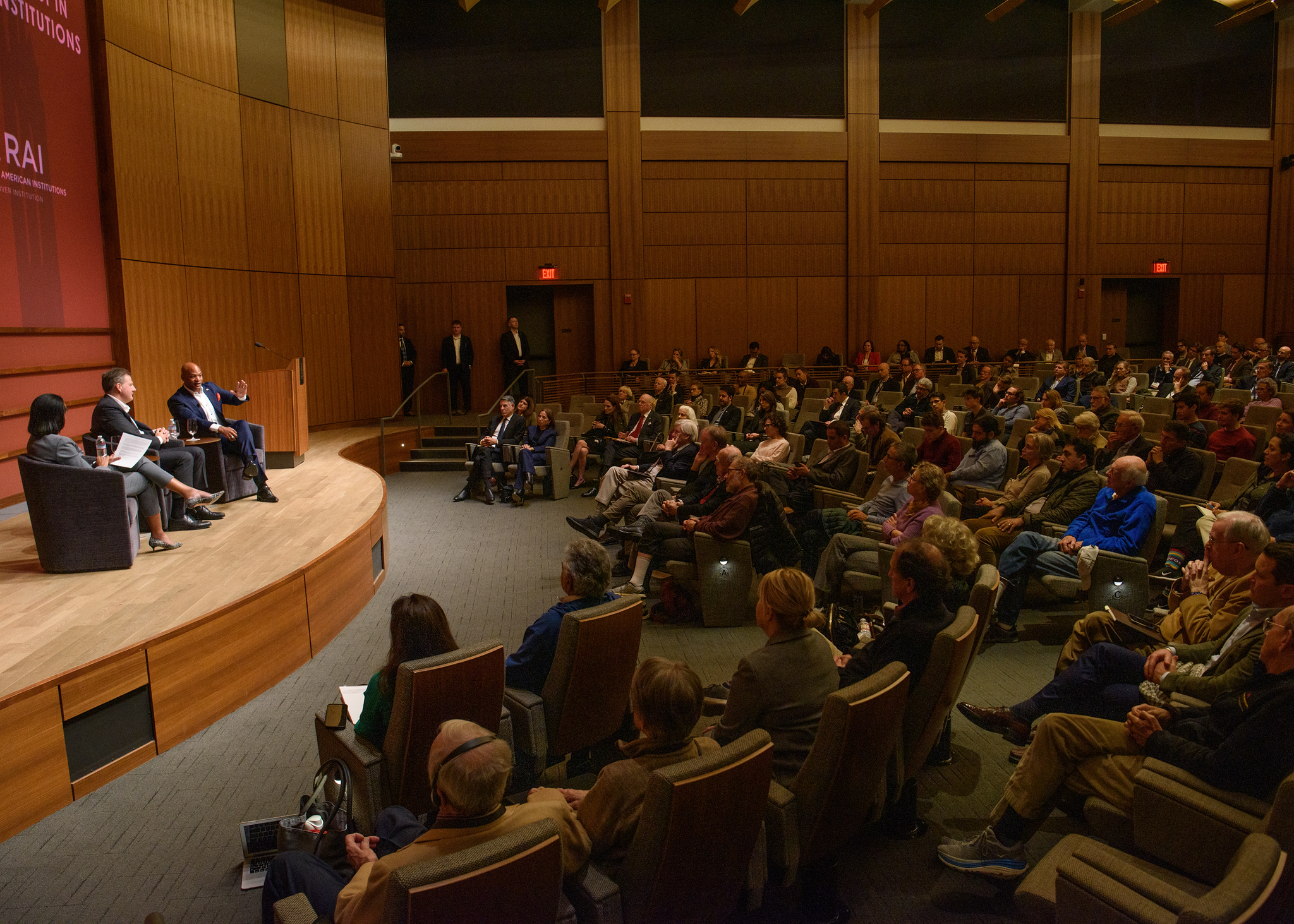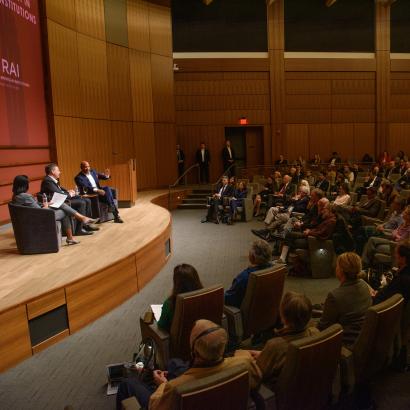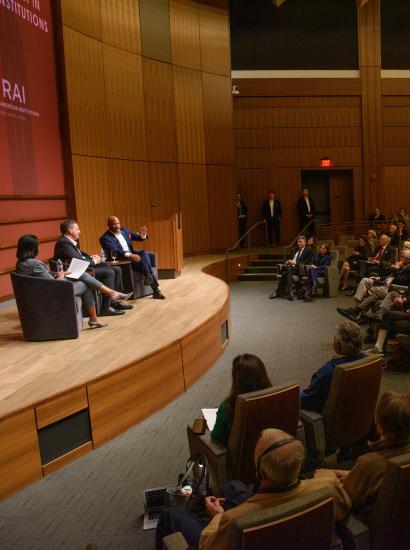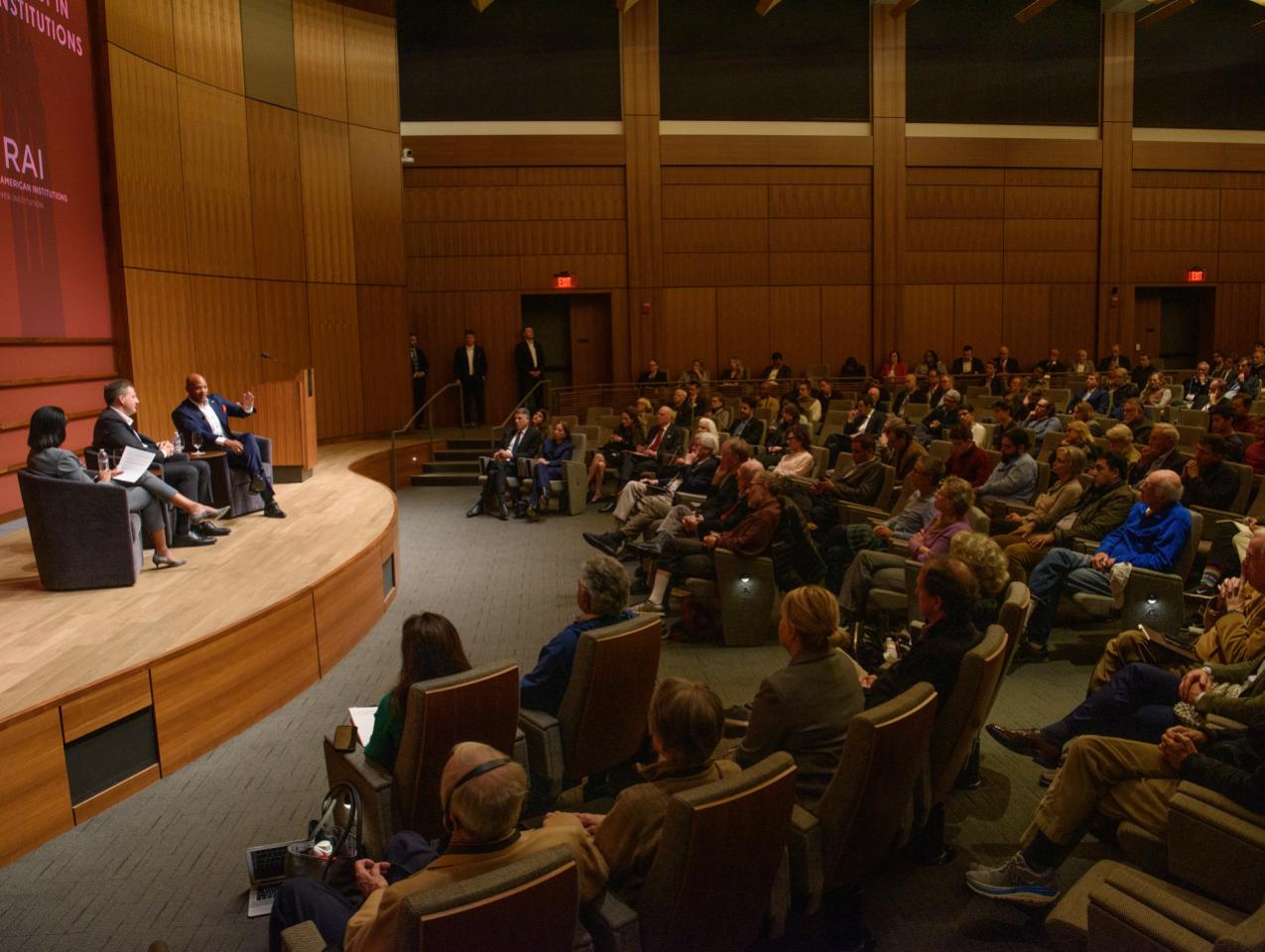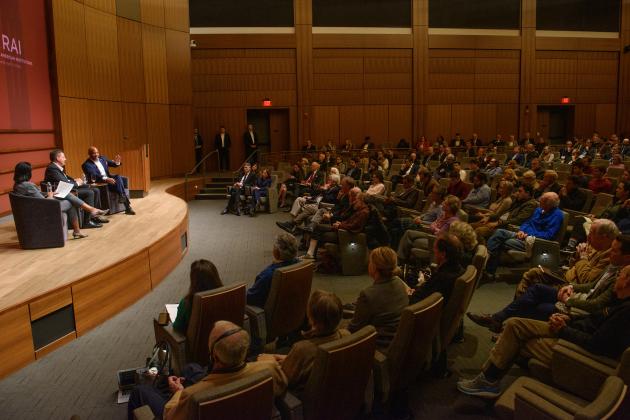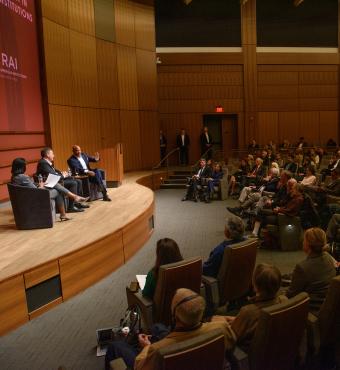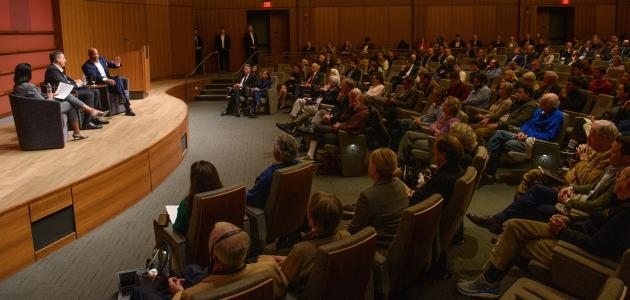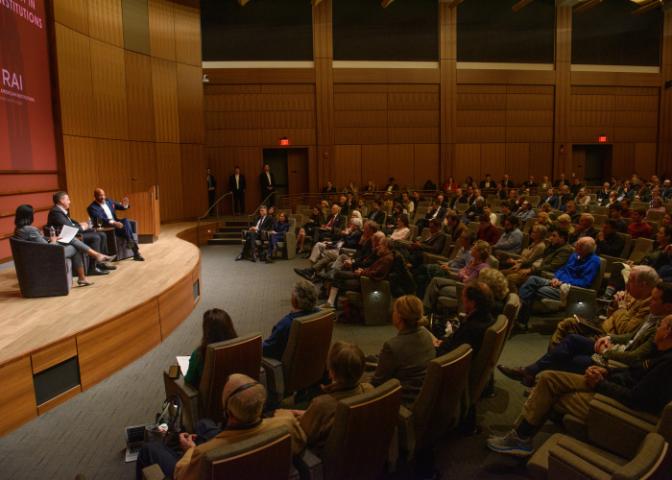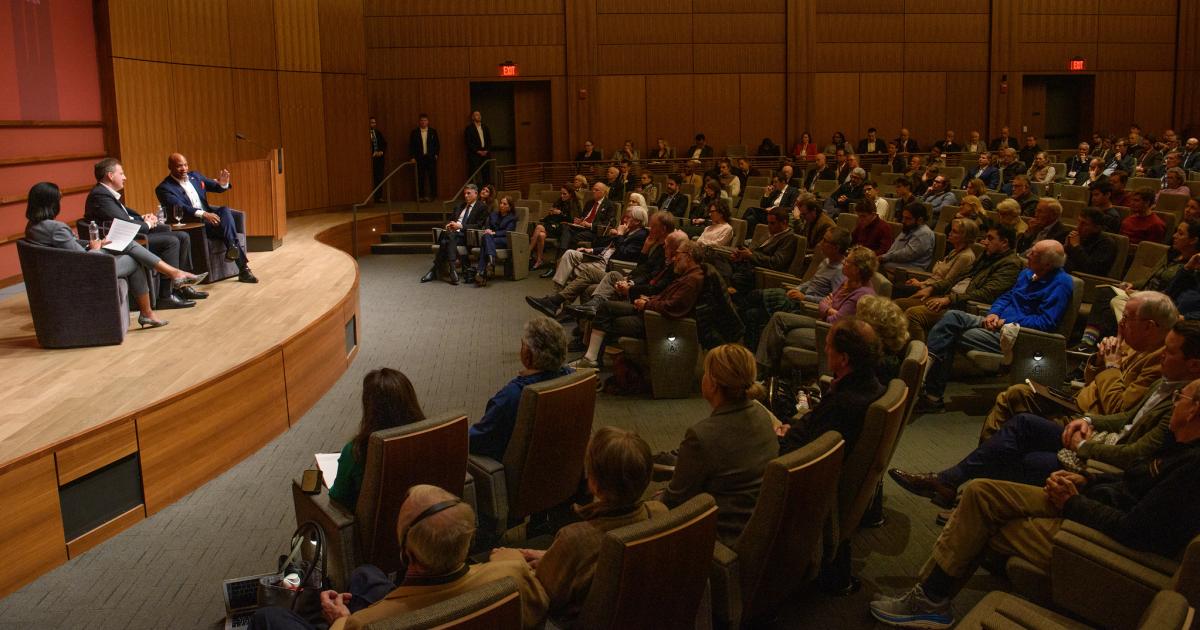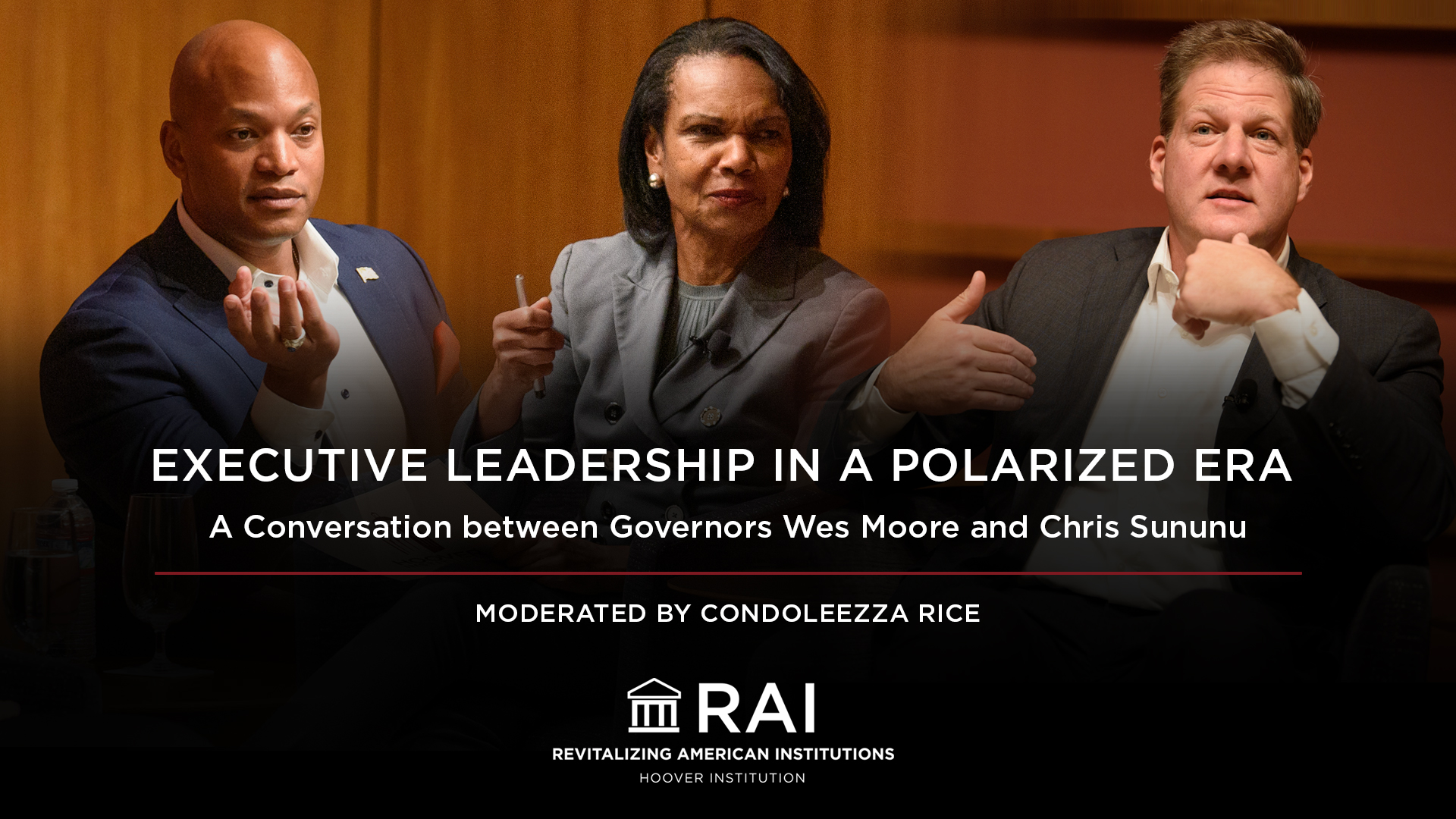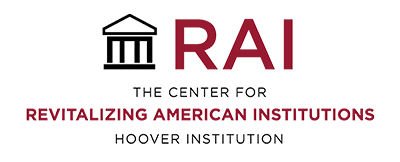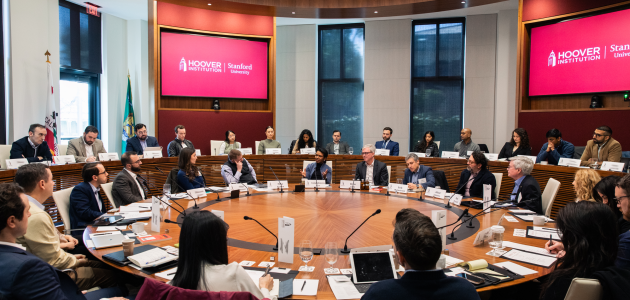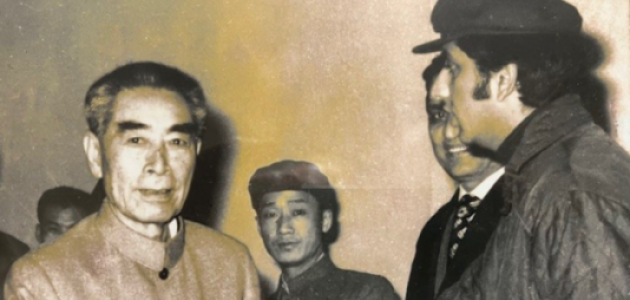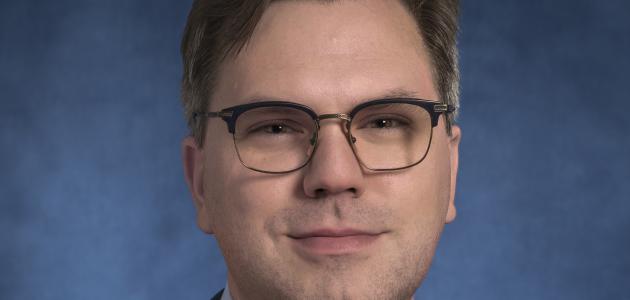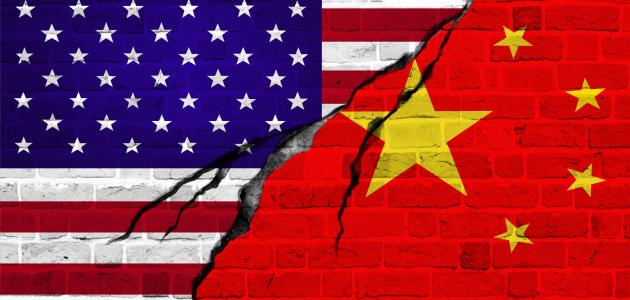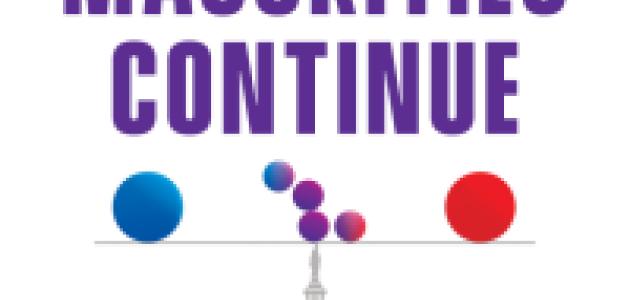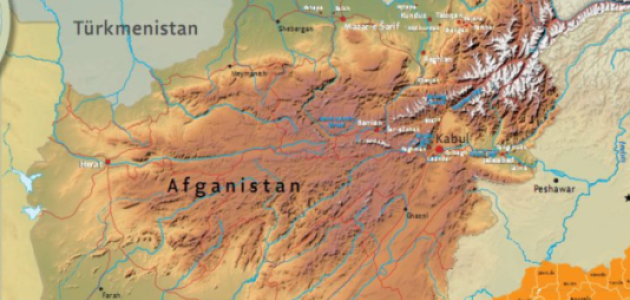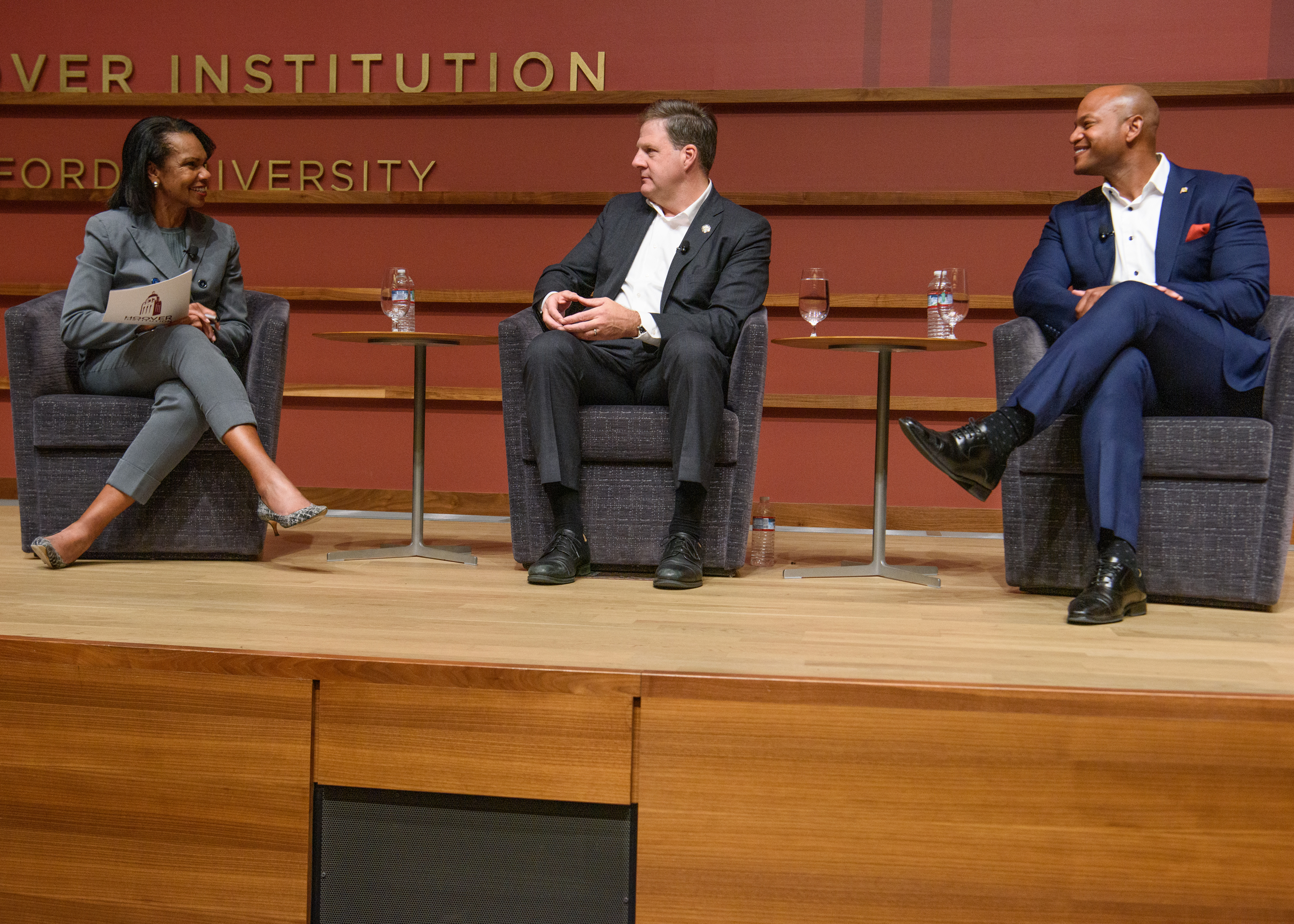
The Center for Revitalizing American Institutions (RAI) marked its launch with a conference on Thursday, November 30, and Friday, December 1, where scholars and policy leaders addressed various challenges threatening the efficacy and stability of America’s democratic institutions.
Addressing Erosion of Trust and Confidence in American Institutions
Directed by Maurice R. Greenberg Senior Fellow Brandice Canes-Wrone, RAI was developed at Hoover with a mission to achieve an understanding behind the astonishingly low trust and confidence in American institutions. The goal of RAI and its affiliated scholars is to document these institutions’ successes and failures and provide recommendations for fortifying them and increasing their effectiveness.
Governing in a Polarized Era

Conversation on governing in a polarized era. Left to right: Condoleezza Rice, Governor Chris Sununu (New Hampshire), and Governor Wes Moore (Maryland) (Steve Castillo, 2023).
The conference commenced in Hauck Auditorium on Thursday with an armchair conversation led by Hoover Institution director Condoleezza Rice between two governors, Wes Moore, a Democrat from Maryland, and Chris Sununu, a Republican from New Hampshire.
Despite their differing political philosophies, governors Moore and Sununu both highlighted the role of state and local leadership in rebuilding trust and reducing polarization. Government transparency, accountability, and responsiveness to citizens were underscored as vital elements in achieving this shared goal.
Watch the discussion below:
Enhancing Civil Discourse
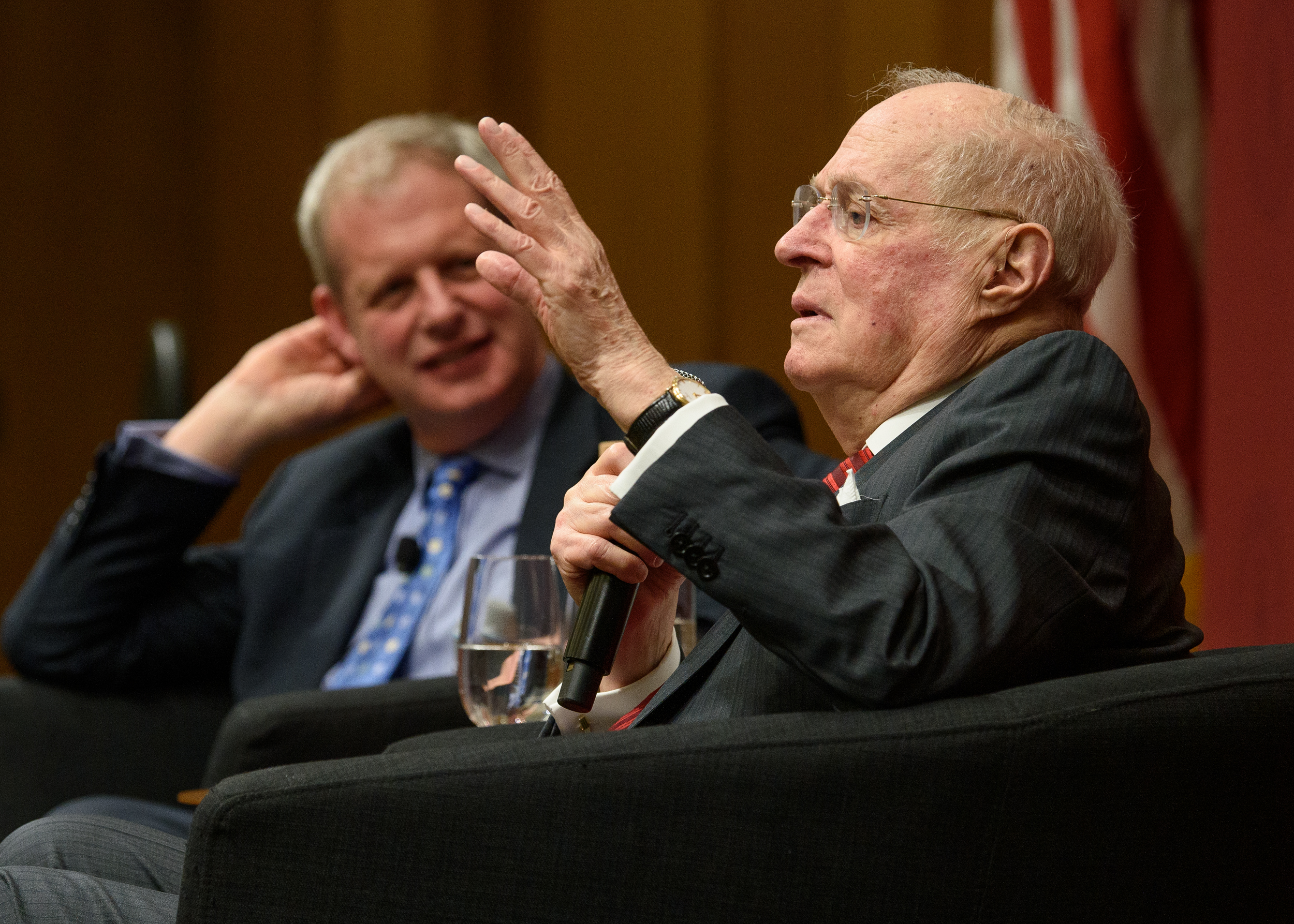
Visiting fellow Eugene Volokh (left) in conversation with retired US Supreme Court Justice Anthony Kennedy. (Steve Castillo, 2023).
Following the governors’ panel, visiting fellow and constitutional scholar Eugene Volokh engaged in a dinner keynote conversation with retired US Supreme Court Justice Anthony Kennedy. Justice Kennedy emphasized the importance of civic education in solving current crises of democratic governance. Justice Kennedy said it is impossible to defend democratic institutions if citizens don’t understand their functions or purposes.
Kennedy also reflected on his own experiences on the court, including how cases that were resolved with a high degree of controversy at the time often were met with the consent of large portions of Americans over time.
The conference continued on Friday with a series of panel discussions as follows:
Executive Power and the Administrative State
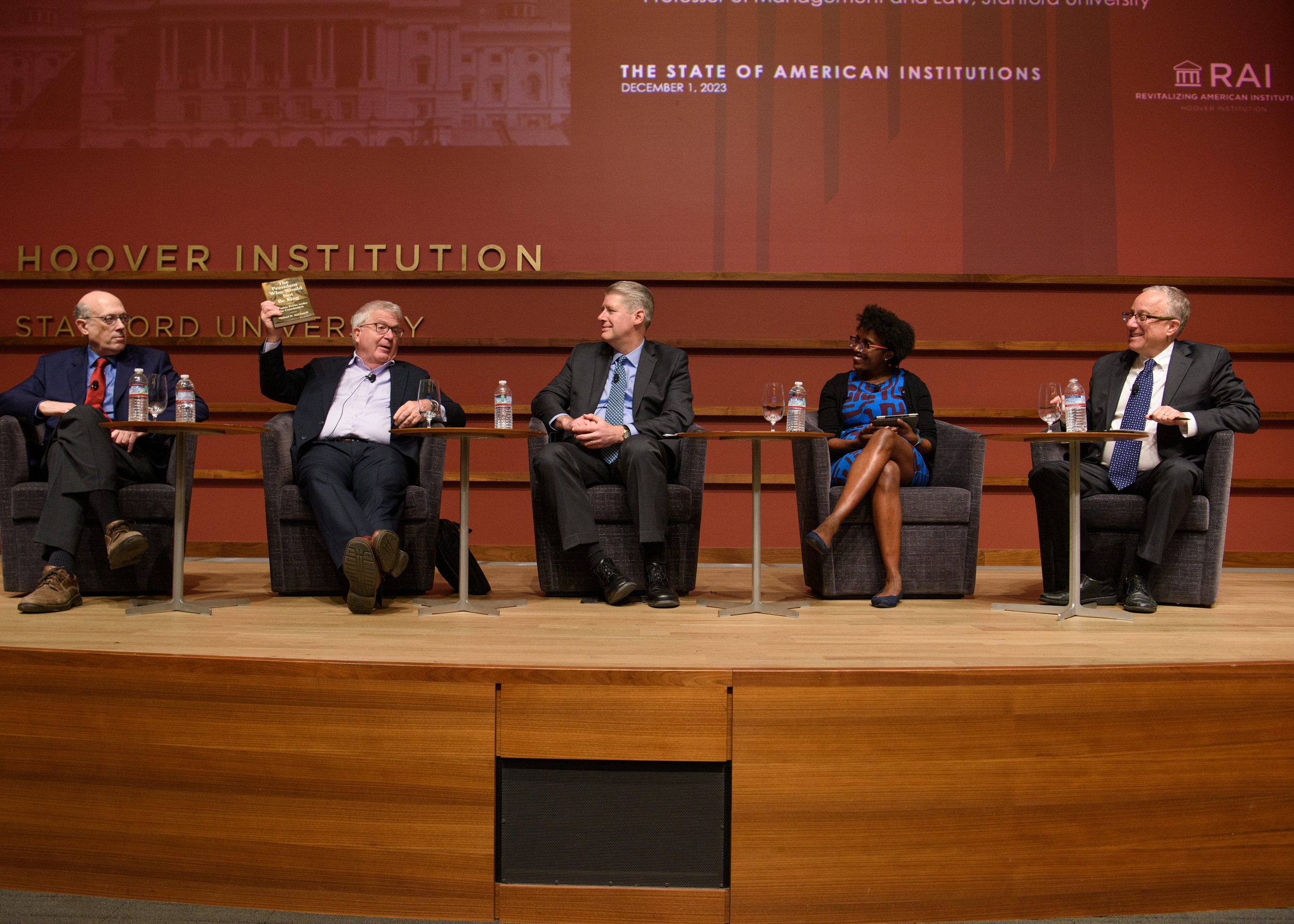
A panel convened on executive power and administrative state. Left to right: Phil Hamburger, Michael McConnell, Andrew Rudalevige, Sharece Thrower, and Daniel Kessler. (Steve Castillo, 2023).
Panel: Philip Hamburger (Columbia Law School); Michael McConnell (Stanford University and Hoover Institution); Andrew Rudalevige (Bowdoin College); and Sharece Thrower (Vanderbilt University and Hoover Institution)
Moderator: Daniel Kessler (Stanford University and Hoover Institution)
In the opening panel, scholars discussed the legitimacy of regulatory agencies in the executive branch. Concerns were raised about the unelected nature of the administrative state and its potential encroachment on the lawmaking authority of elected representatives. One panelist also argued that these agencies deprive citizens of due process through adjudication hearings that should be heard by impartial courts.
During the panel, scholars also addressed how regulatory agencies can bring technical expertise, emphasizing the integral role of presidential leadership and management in assessing the feasibility of agency decisions. It was further advanced that Congress could restrain regulatory agencies by bolstering its own staffing and resources, ensuring relevant expertise for effective oversight of executive branch decision making.
RAI released an essay series on administrative law last week. Click here to learn more.
Revitalizing Trust in Congress
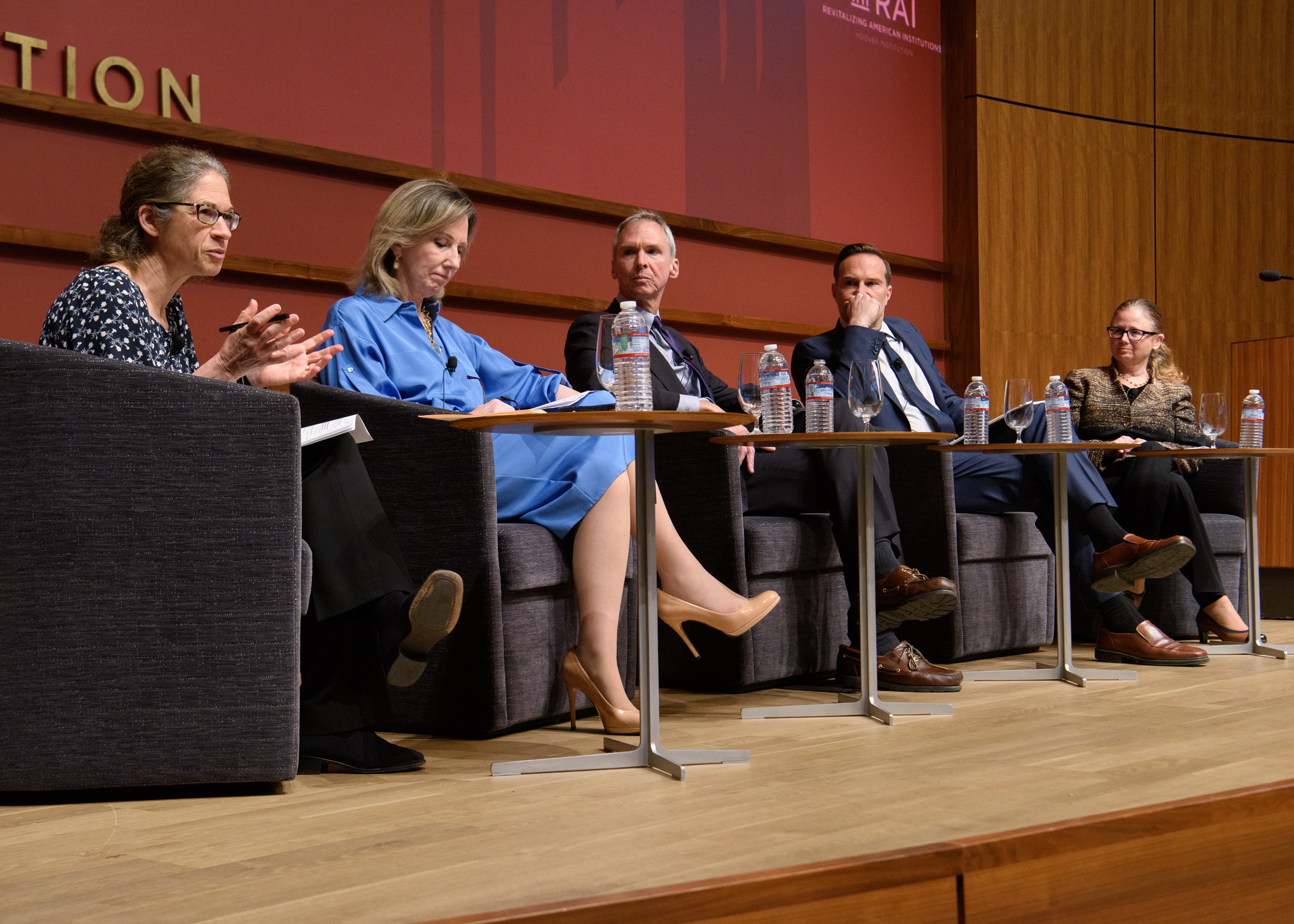
A panel convened on revitalizing trust in Congress. Left to right: Sarah Binder, Barbara Comstock, Dan Lipinski, Jonathan Rodden, and Brandice Canes-Wrone. (Steve Castillo, 2023).
Panel: Sarah Binder (Brookings Institution and George Washington University); the Honorable Barbara Comstock (former US representative from Virginia); the Honorable Dan Lipinski (Hoover Institution and former US Representative from Illinois); and Jonathan Rodden (Stanford University and Hoover Institution)
Moderator: Brandice Canes-Wrone (Stanford University and Hoover Institution)
In the second panel, participants addressed how the US Congress can more effectively provide representation and regain the confidence of the American people. Panelists traced the decline in bipartisanship, attributing it to hyperpolarization that has grown across the twenty-first century. This polarization has resulted in legislative deadlocks, prompting occupants of the White House to act unilaterally instead of collaborating with Congress. Panelists identified egregious redistricting decisions as a factor contributing to polarization.
Public Opinion, Primaries, and the 2024 Election
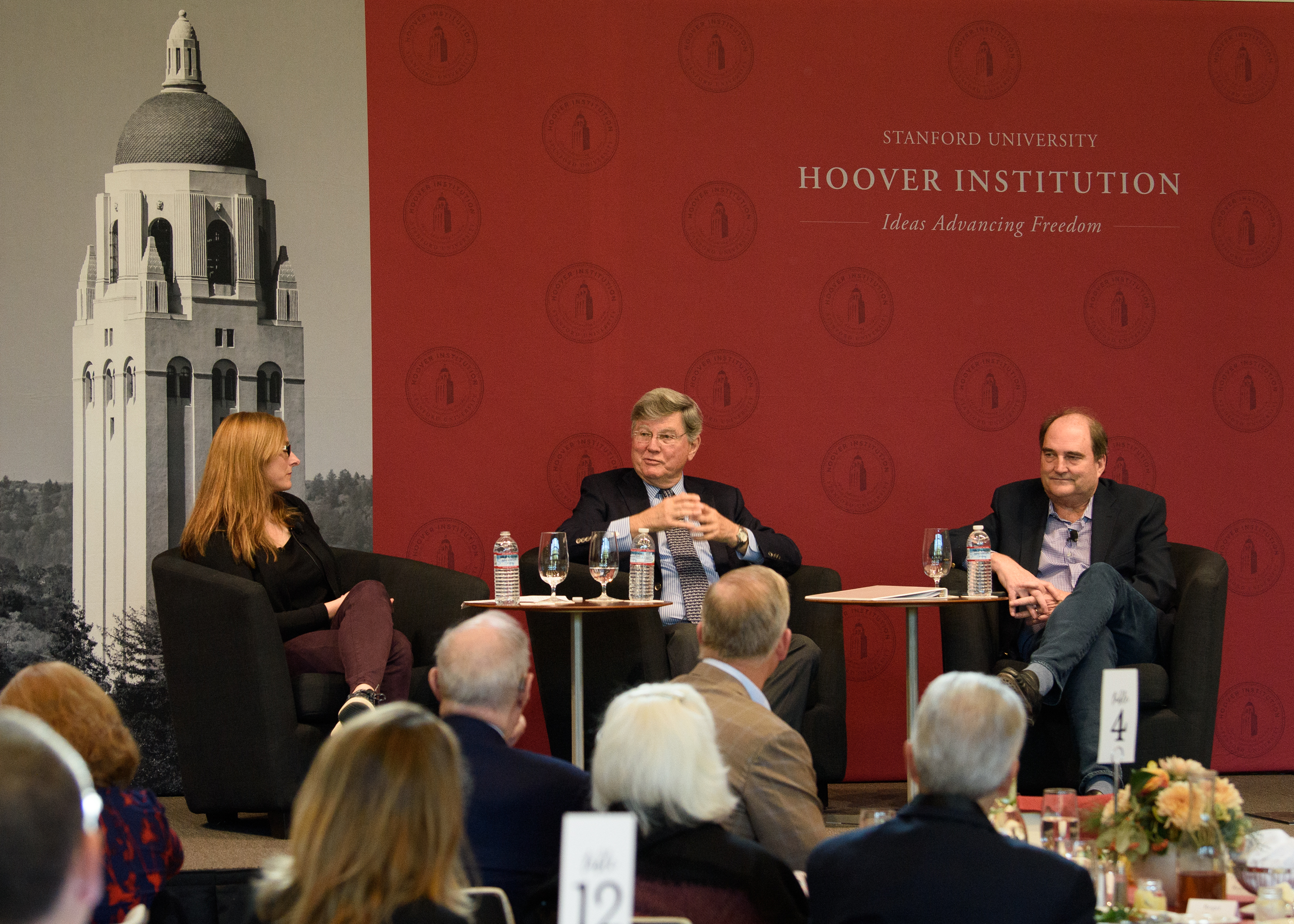
A keynote lunch conversation on public opinion, primaries, and the 2024 election. Left to right: D. Sunshine Hillygus, David Kennedy, and Douglas Rivers. David Brady presented via Zoom. (Steve Castillo, 2023).
Panel: David Brady (Stanford University and Hoover Institution); David Kennedy (Stanford University and Hoover Institution); and Douglas Rivers (Stanford University and Hoover Institution)
Moderator: D. Sunshine Hillygus (Duke University)
During a keynote luncheon, David Kennedy, a distinguished visiting fellow at Hoover and a history professor at Stanford, offered a historical perspective on the American primary process. He outlined the effects of rule changes that followed the 1968 election, mandating the transfer of delegates to candidates based on the voters’ will rather than the discretion of party leaders in nominating contests.
Kennedy was followed by Davies Family Senior Fellow, Emeritus, David Brady, who presented data demonstrating how primary voters from both major political parties invariably elect congressional candidates on their respective party’s extremes, fostering a political environment with no incentive for compromise. The session concluded with remarks by senior fellow, Stanford political scientist, and pollster Douglas Rivers, who provided an analysis of the 2024 presidential election, describing polling data that demonstrates distinct advantages for Republicans.
Revitalizing Trust in the Military
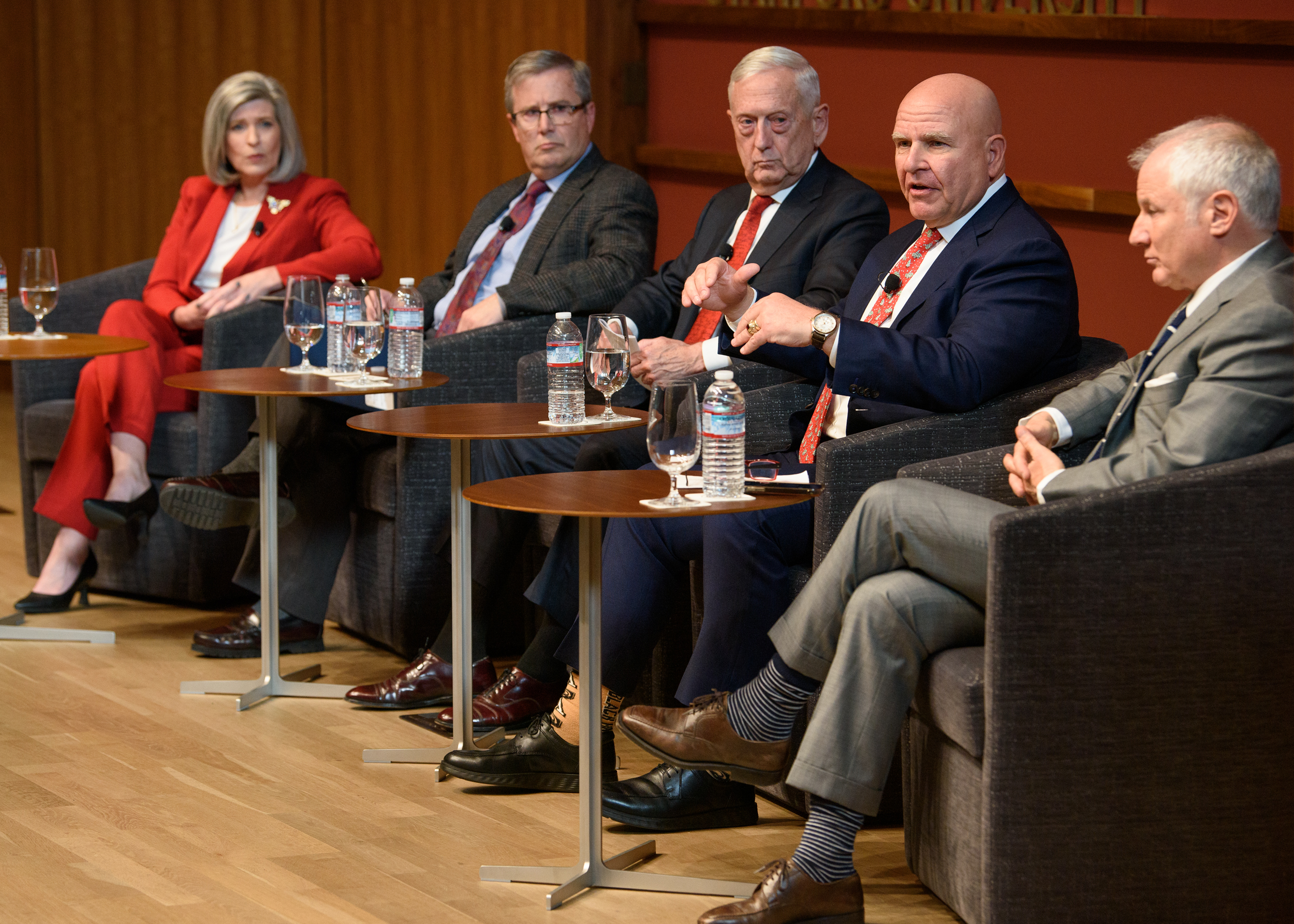
A panel convened on revitalizing trust in the US military. Left to right: Joni Ernst, Peter Feaver, Jim Mattis, H.R. McMaster, and Stephen Kotkin. (Steve Castillo, 2023).
Panel: the Honorable Joni Ernst (US Senator for Iowa); Pete Feaver (Duke University); General Jim Mattis (Hoover Institution); and Lieutenant General H.R. McMaster (Hoover Institution).
Moderator: Stephen Kotkin (Hoover Institution and Stanford University)
In the first afternoon panel, participants discussed strengthening the American public’s trust in the US military. Despite the military’s enjoying greater trust compared to other institutions, its current level of 60 percent, as reported by a recent Gallup poll, still represents a recent decline.
Participants suggested that rebuilding trust requires addressing the deficit of civics and history education. Further, citizens must understand that one of the pillars of US government is civilian control of the military.
Participants also maintained that a component of restoring trust is preserving the warrior ethos and maintaining high standards of excellence among military personnel. The populace, participants maintained, should understand the military is intended to protect and defend the country, and its mission should not be sidetracked by political agendas.
Universities and Civic Culture
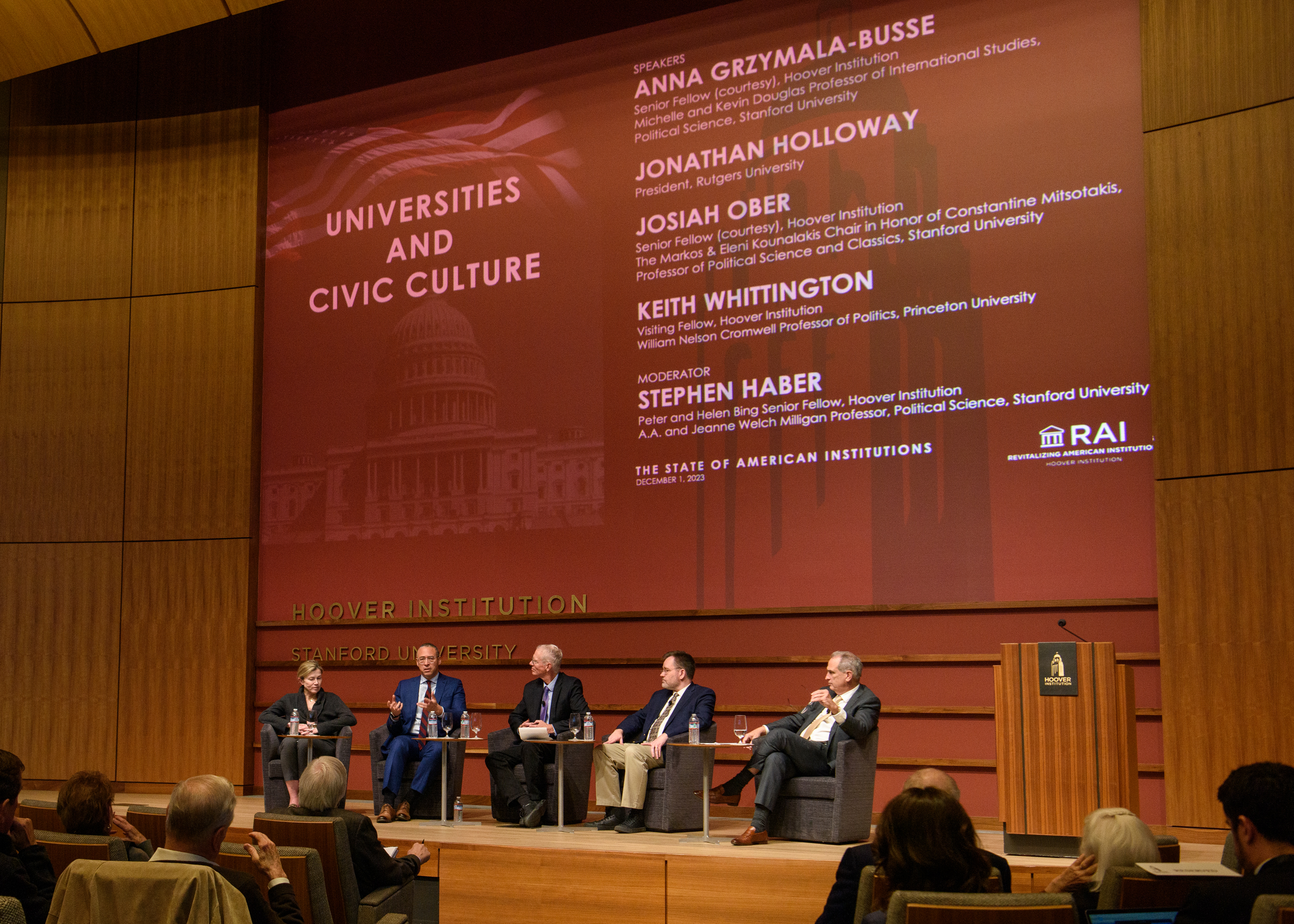
A panel convened on universities and civic culture. Left to right: Anna Gryzmala-Busse, Jonathan Holloway, Josiah Ober, Keith Whittington, and Stephen Haber. (Steve Castillo, 2023).
Panel: Anna Grzymala Busse (Stanford University and Hoover Institution); Jonathan Holloway (Rutgers University); Josiah Ober (Stanford University and Hoover Institution); and Keith Wittington (Princeton University and Hoover Institution)
Moderator: Stephen Haber (Stanford University and Hoover Institution)
In the second afternoon panel, participants discussed the dearth of civil discourse at universities. It was suggested that university administrations have struggled to adapt to the pace of the social media environment and political pressures exerted on campuses from outside forces.
Participants agreed that faculty should focus on research and pedagogy. Instead of shutting down debate to evade controversy, they maintained, leadership in the academy should do a better job of listening and helping foster respectful conversations about society and politics with diverse points of view.
Administration and Trust in Elections
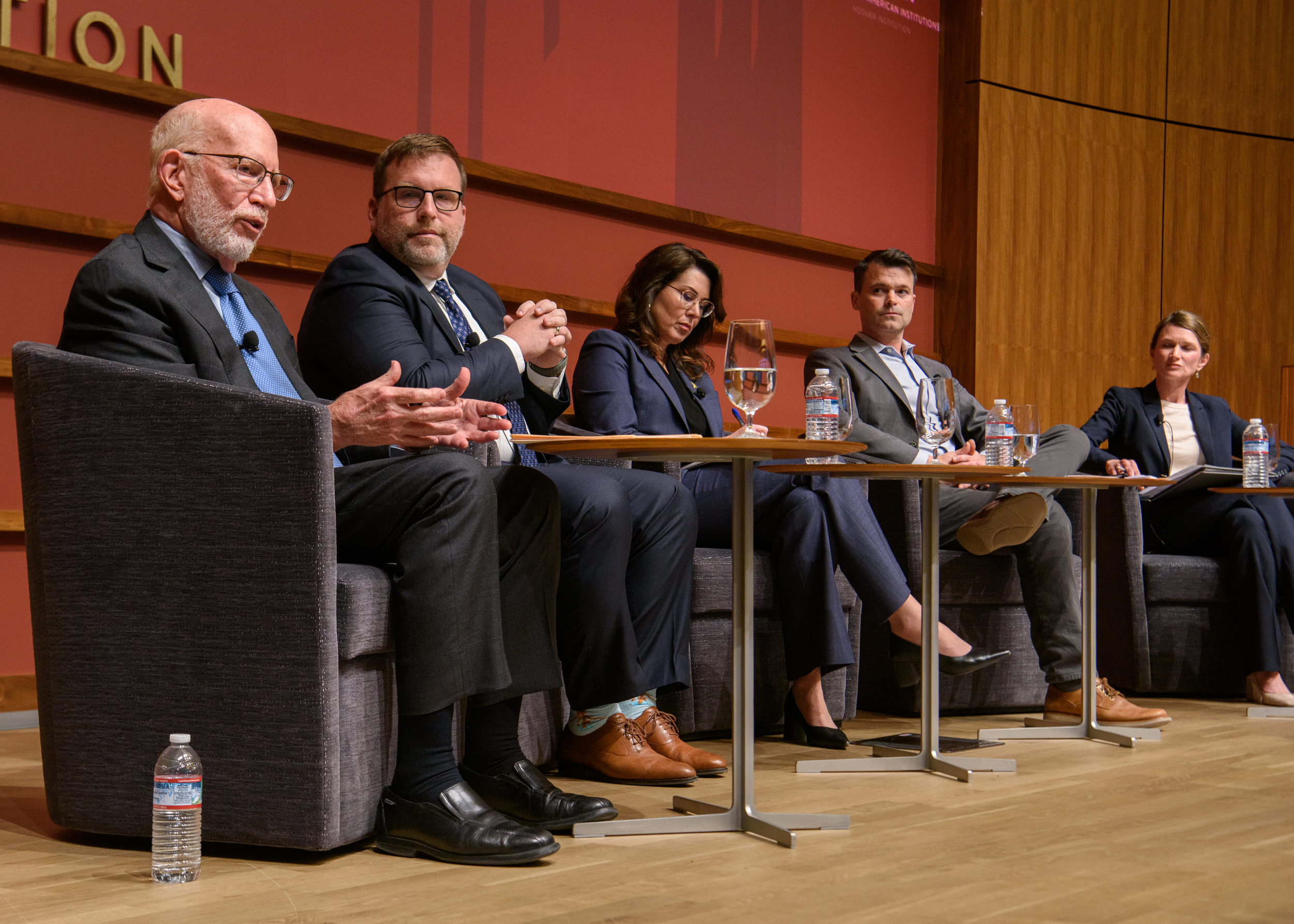
A panel convened on administration and trust in elections. Left to right: Benjamin Ginsberg, Justin Grimmer, Deidre Henderson, Rob Willer, and Sarah Anzia. (Steve Castillo, 2023).
Panel: Benjamin Ginsberg (Hoover Institution); Justin Grimmer (Hoover Institution and Stanford University); Deidre M. Henderson (Lieutenant Governor from Utah); and Rob Willer (Stanford University)
Moderator: Sarah Anzia (UC Berkeley and Hoover Institution)
In the concluding panel, participants focused on the alarming lack of trust in US elections among citizens. With over one-third of the nation expressing doubt about the reliability of the electoral process, the participants maintained that there exists a critical need for strengthening confidence to avoid impediments to the nation’s political leadership in governing effectively.
Various strategies were discussed to address this crisis in confidence. These included conveying research findings, much of which has been conducted by Hoover scholars, to dispel misconceptions that assert US elections are compromised by significant voter fraud or suppression. Additionally, the panelists emphasized the importance of enhancing communication with voters, providing clear information about the safeguards in the electoral system. They also advocated for improvements in the way the media reports election results, aiming to temper the intensity of public discourse, particularly in tightly contested races.
For more information on the Center for Revitalizing American Institutions, click here.







